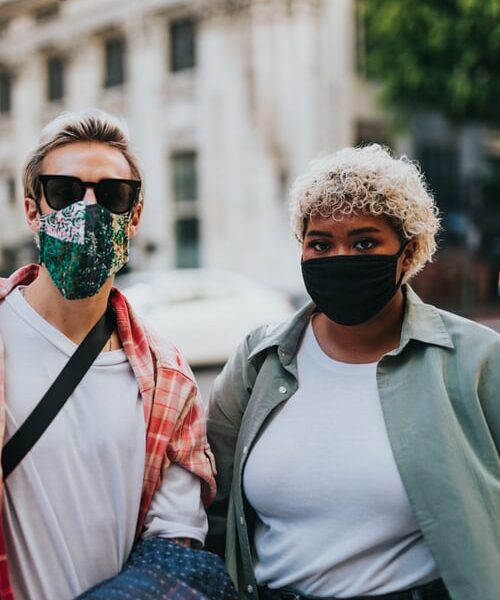“Should all people be guaranteed the right of never having their medical treatments suddenly terminated with life-ending consequences for the benefit of others, or are there some situation so dire such that ethical decisions must be made whereby certain people — and perhaps certain groups — are prioritized over others?” Many reasonably argue that equality between all should continue to be in effect in dire situations such as the coronavirus pandemic, arguing that there exist no circumstances in which any one person’s life should be valued more than another’s. Whereas the thought of removing a person from potentially life saving treatment is horrible and repulsive for those of us who remain safely coddled in our homes, the world’s leading ethicists presently maintain that, throughout this pandemic, a discriminating use of limited resources would actually lead to less loss of life. In order to minimize the devastating effects of ravaging plagues on society — such as the current coronavirus pandemic that is currently decimating elderly populations — to quell the spread of the pandemic, those who could diminish the effect of the pandemic, such as front-line healthcare workers, first responders, and law enforcement, absolutely should be prioritized.
A number of dissenting ethicists argue that no human life should be deemed more useful (even when saving more lives is at stake) when decisions involving life and death are to be made, and these ethicists argue that a usual system of first come first served be upheld with respect to scant hospital beds, life-sustaining ventilators, and other limited equipment. This argument is ethically reasonable, as democracy is constructed in such a way that no life should have to be valued over another, and the United States Constitution itself outrightly declares that every life is equally valuable. However, the coronavirus directly targets the elderly and those with pre-existing conditions such as heart disease, cancer, and diabetes, and lamentably, it is these people who are much likelier to succumb to the virus. . According to the Department of Health in Washington State, patients aged 0-39 make up 0% of deaths, while patients 80+ have made up “55%” of deaths (Department of Health). Though it is heartbreaking to consider such, it nonetheless makes sense that, in a scenario in which a doctor has one hospital bed yet two patients, — one young and healthy and one elderly with several heart conditions — the doctor should choose to give the hospital bed to the young person. By favoring the younger person, the doctor contributes to a utilitarian outcome in which the effects of the pandemic are best mitigated. Ultimately, even though ethically it is questionable to give preference to a young, fit person over a sickly elderly person, when it comes down to the decisions it inevitably will, only one of these options, if consistently chosen, will diminish the deleterious effects of the coronavirus on our presently vulnerable society.
Proponents of a first come first serve healthcare system believe that those in power can abuse the rationing of hospital space by using money to put themselves further ahead, widening the gap between the rich and the poor in today’s society and disproportionately affecting those without money. This is a massive issue with today’s American society. According to the Global Wealth Databook 2018, in 2016, the top 1% of Americans owned “38.6%” of wealth in the United States. In addition, the top 10% of Americans owned “77.1%” of wealth in the United States (Statista). Looking at these numbers, it makes sense that there would be a major inequality in who would get hospital assistance and who would not. Those with money can afford health insurance, ambulance rides, and leaving work to come to the hospital. Those without money cannot afford these luxuries. In this way, opponents of rationing healthcare are correct. The rich in America have an unfair advantage when it comes to treating the coronavirus. However, income inequality cannot magically be fixed in the time this coronavirus is present, nor can treatment of the coronavirus wait until income inequality is fixed. This is an issue that if not solved now, will kill thousands of Americans. Therefore, even though income inequality in the United States is a major problem, if not acted upon, the coronavirus will damage many more lives. According to Brian M. Rosenthal and Joseph Goldstein of the New York Times, “in 2015… there were only 2800 available” ventilators, while in today’s time, approximately “18,600 New York patients would need ventilators each week” (Rosenthal, Goldstein). The shortage of these life-saving ventilators means that doctors will inevitably find themselves in the impossibly unfair ethical position of needing to execute — and with consistent accuracy — sobering decisions about who lives and who dies. This means that the doctors will certainly prioritize patients who may only need the ventilator for a short while over patients who would not be likely to survive even with the help of a ventilator, in order to move through more patients and save as many lives as possible. In essence, the doctors need to decide who is more likely to live through the use of the ventilator and give the equipment to that person. Saving more lives betters the chance that the United States comes out of this pandemic with fewer scratches.
Opponents to rationing healthcare believe that those with pre-existing health conditions are already stigmatized in society, and that the rationing of healthcare towards the young and fit increases this stigmatism and creates a wider societal disdain towards these groups. For example, people with disabilities are severely discriminated against by ableists, and being deprioritized for urgent medical services due to overall help to society can be seen as ableist or extremely stigmatized. Those with health conditions already have low probability of survival, and being denied hospital beds or ventilators can be seen as a widening of the gap that separates them from people without health conditions. However, from a utilitarian standpoint, though the ethics of equality may be compromised, prioritizing groups of people over others is necessary to strengthening society after the fall of the virus. Those working jobs in the healthcare industry, such as doctors, nurses, EMTs, first responders, and by extension law enforcement deserve to take priority over those with other jobs in the case of limited hospital space, due to a ripple effect of these people being able to mitigate the spread of the virus after they are released from the hospital. Without these healthcare workers, today’s society would fall apart and the economy would come crashing down. Protecting these workers must be the top priority, as they are able to staunch the spread of the virus. Without putting as many healthcare workers on the frontlines as possible, the coronavirus will continue to wreak havoc to society.
Ultimately, though the ethics of rationing healthcare may be questionable and generally inexcusable in society, during times of duress such as the coronavirus pandemic, rationing healthcare becomes the only way to navigate the current climate without having society collapse as a whole. Healthcare workers and law enforcement need to be prioritized above others in the case of hospital bed and ventilator shortages, in order to mitigate the effects of the pandemic and help society remain as smooth sailing as possible. Doctors need to make tough decisions about who needs to be saved and why. The pandemic will surely cause our society to reduce in population, but with the right steps taken by hospital workers, it can be quelled and maintained.
Sources:




